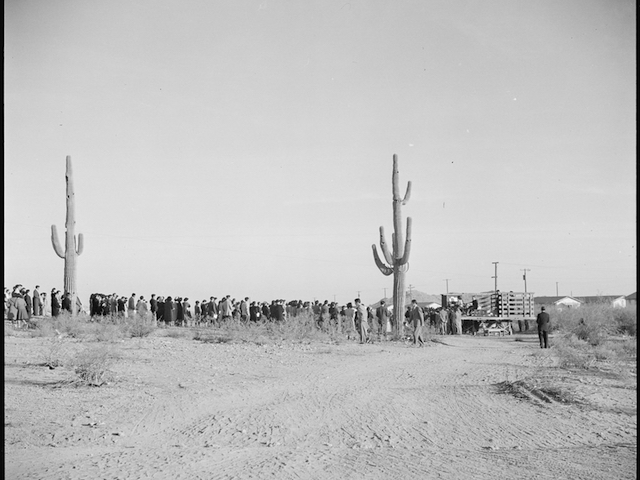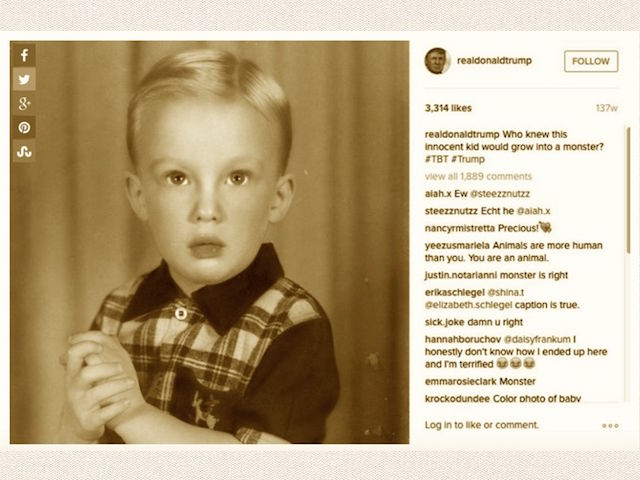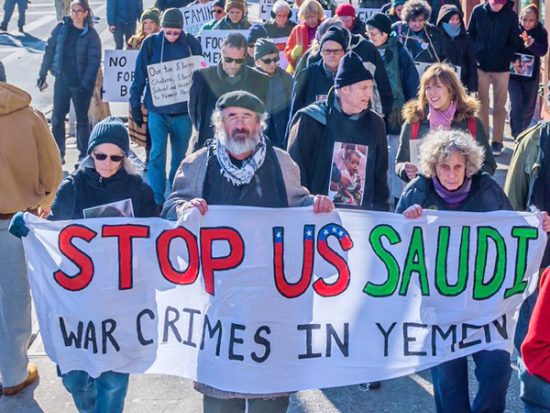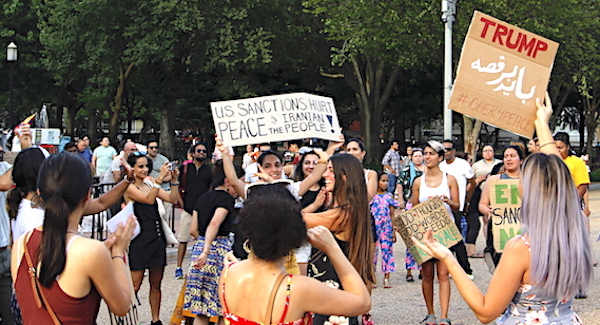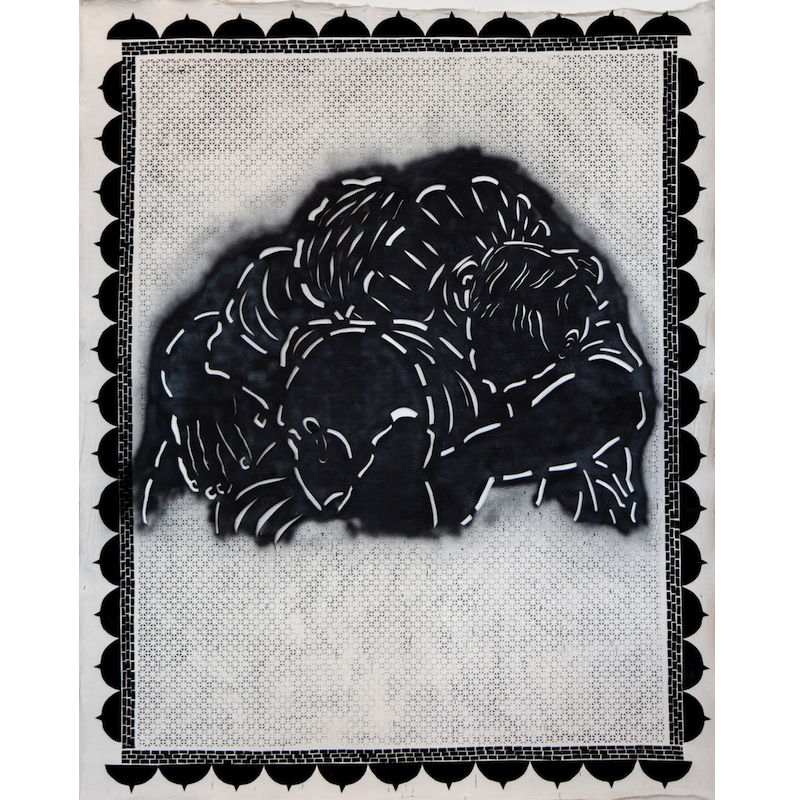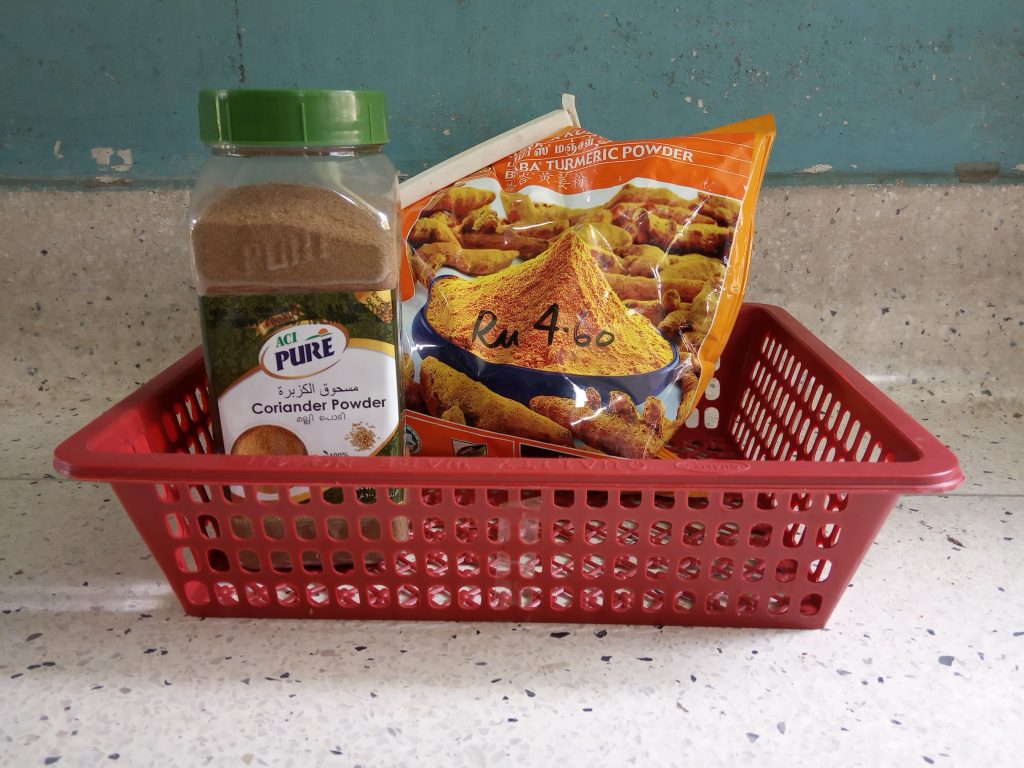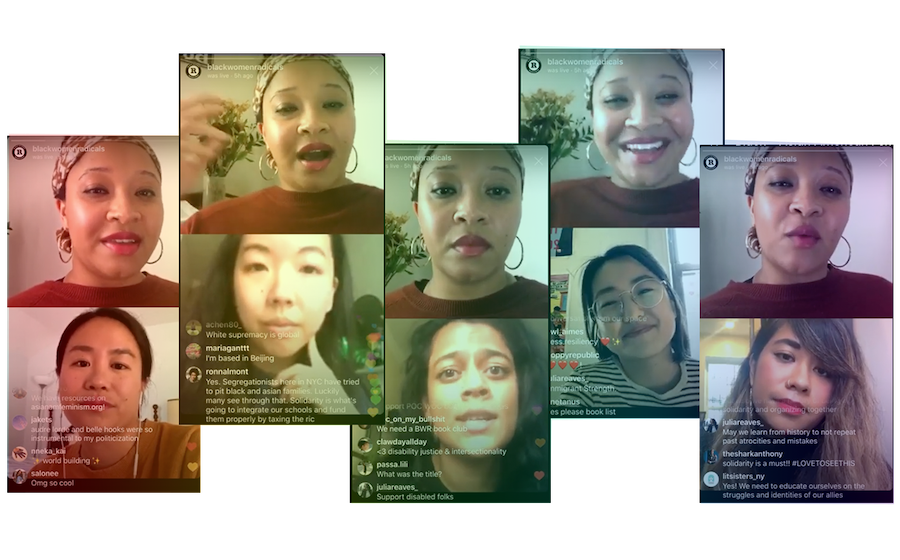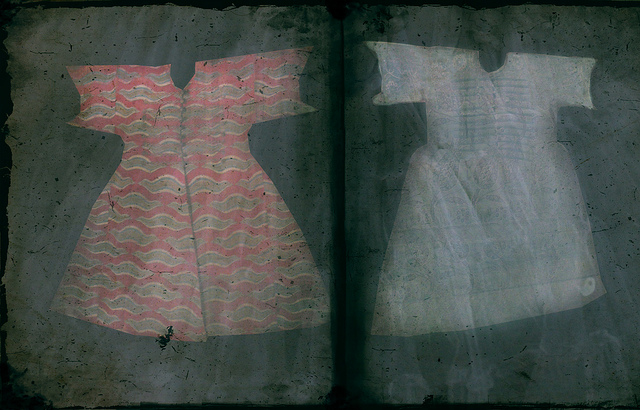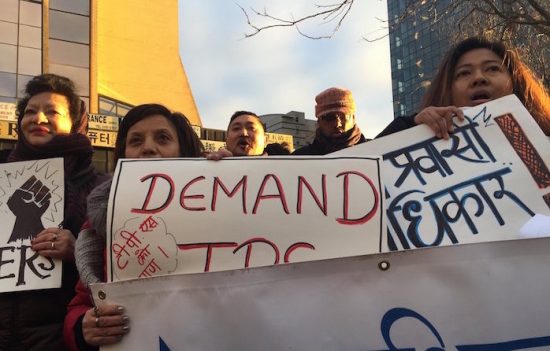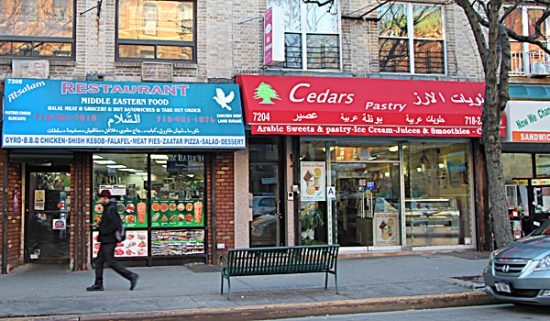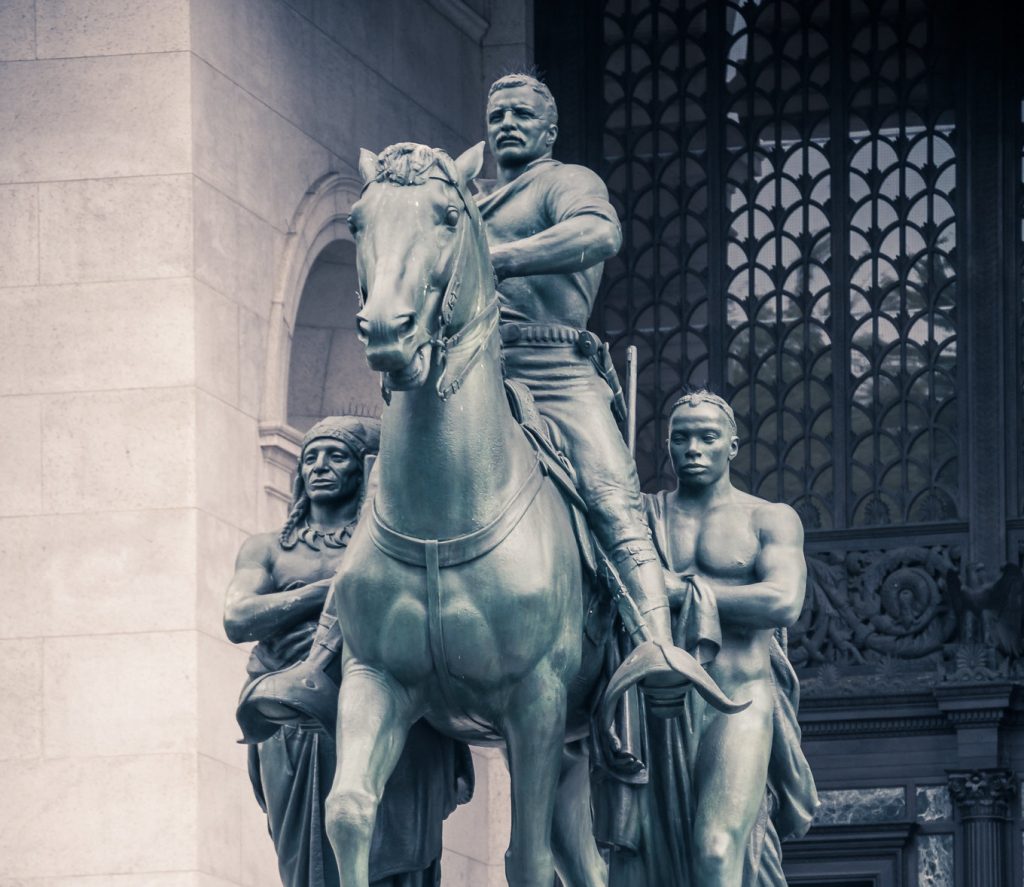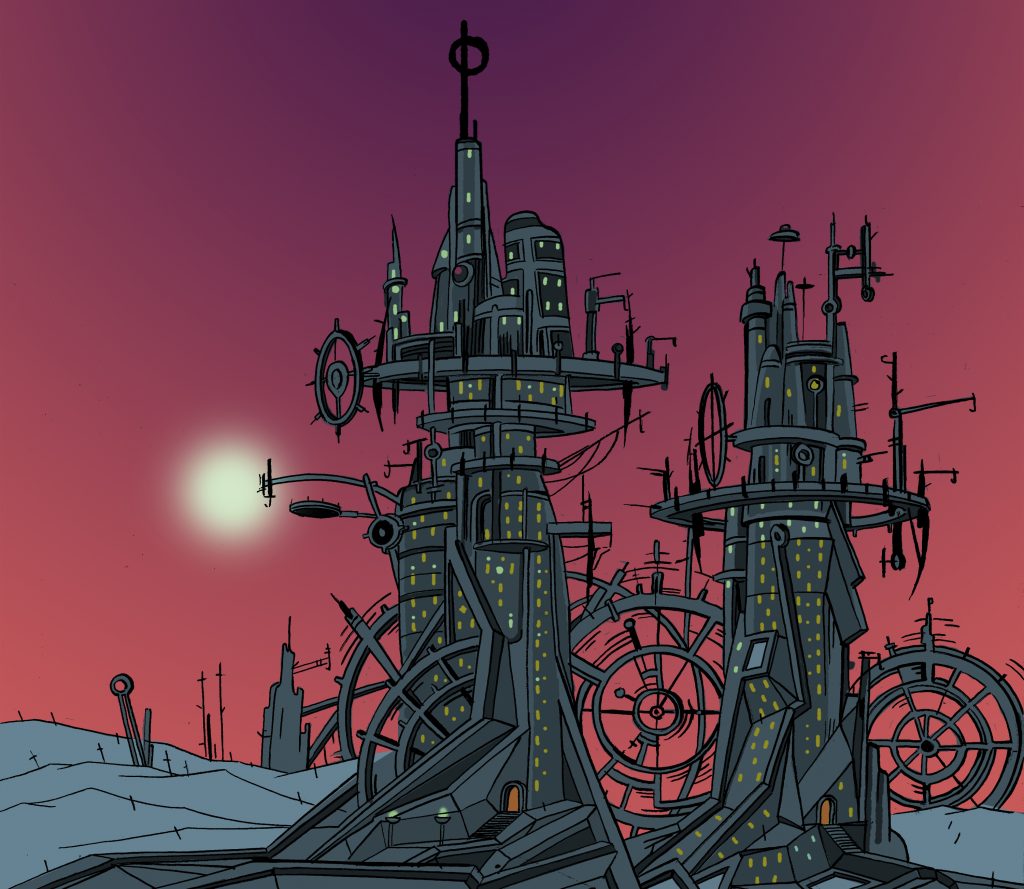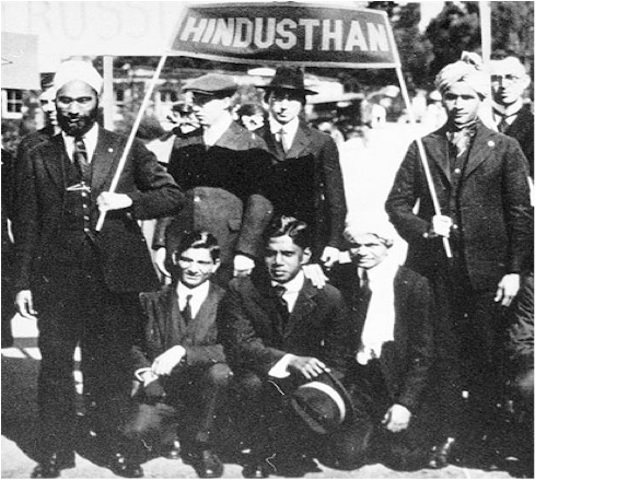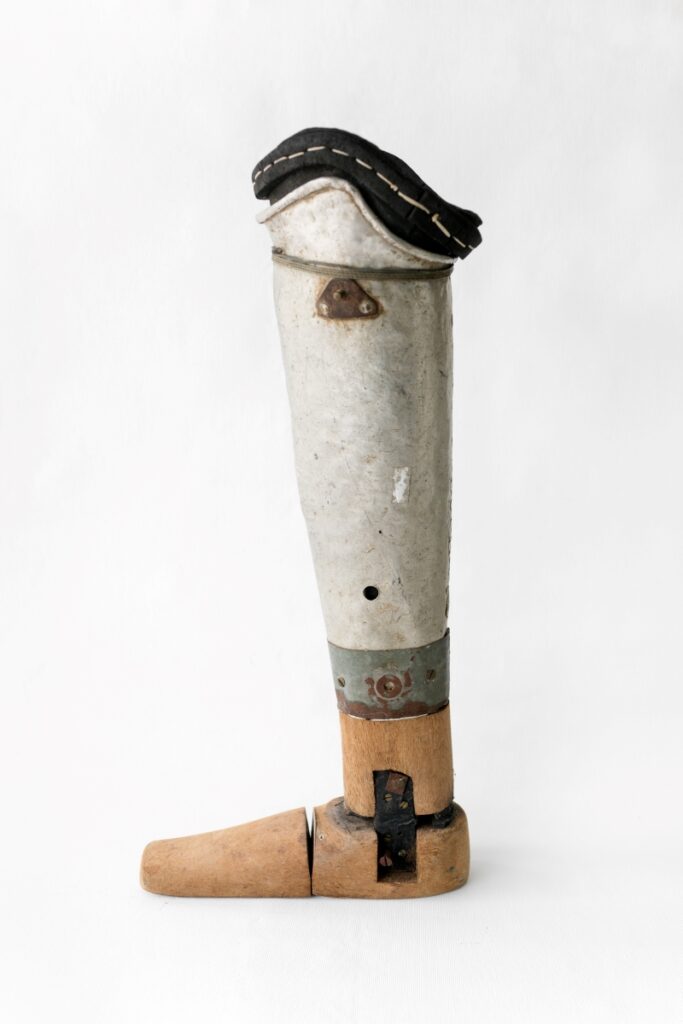How our writers have helped us name, respond to, and imagine beyond the politics of the past four years
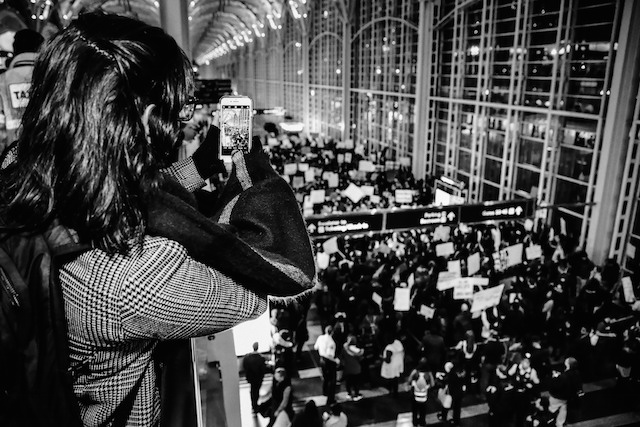
February 12, 2021
With Donald Trump’s second impeachment trial underway in the Senate and as the United States ushers in a Biden presidency, we’re taking some time to look back over the past four years—to bring into relief the work of writers we’ve published on The Margins who have helped us name, identify, and respond to the harm the Trump era perpetuated, maintained, and heightened. How have our writers addressed the way these past four years affected immigrant communities in New York City and beyond? How have they unpacked the histories that draw parallels and direct lines to this moment? What have they noticed about the past four years transnationally? And what have our writers imagined might lead us to a more just future? The legacy of harm under Trump stretches back centuries before his presidency, and will certainly not vanish anytime soon. We hope these works help us continue to make meaning from our recent past, and give us words for what we wish to build.
—Jyothi Natarajan
Editor in Chief
State of Erasure: Arizona’s Place, and the Place of Arizona, in the Mass Incarceration of Japanese Americans by Brandon Shimoda
January 20, 2017
Brandon Shimoda delivered this essay—on the living entrails of Japanese American incarceration in Arizona—as a talk at the Holocaust History Center at the Jewish History Museum, in Tucson, Arizona on Inauguration Day in 2017.
“Imagine a state in which two of the four largest cities are concentration camps.
That was Arizona in the 1940s: Phoenix, Tucson, Poston, Gila River.
Poston and Gila River are ruins.
Though all the concentration camps were on indigenous land, Arizona’s were the only camps that occupied active Native American reservations. So it is in Arizona that a particular relationship unfolded: the relationship between the treatment of Japanese Americans and the treatment of Native Americans.”
Trumpistan: A Writer and His Notebook After the Election by Amitava Kumar
December 30, 2016
Amitava Kumar responded to Trump’s election in clippings and photos from his notebook, which take us to 9/11, photographs from Partition, and the story of a debt-ridden farmer in Modi’s India.
“In the days after the election, various people have rightly stressed that we must be kind to each other. We must be loving. We must be caring. I agree, but I also know that one of the best ways to go about doing this is to go into places one ordinarily wouldn’t go and ask a simple question: ‘What’s your story?’’
JFK Airport by Celina Su
September 26, 2017
In June 2017, the Supreme Court lifted legal blocks on Trump’s Muslim ban, and granted an exception only for those individuals with “bona fide relationships” to the United States. That summer, we asked writers to imagine creative openings and counter narratives as to what a bona fide relationship might be. Celina Su’s poem is just one of the pieces we published. Read the full collection.
I first arrived on a Pan Am flight.
I thought of it as liberatory,
a fugitive glimpse of a utopian city-world, where
I could discard rules and scripts, my scraping by.
As if I could get un-situated
this airport a bubble hovering
in a void between celestial bodies
in but not of
the country I stand in.
Shithole Country Clubs by Nina Sharma
August 26, 2019
Nina Sharma’s punchy and critical essay wrestles with her Indian American father’s conservative fantasies: his desire to join a country club in their home state of New Jersey, his support of Donald Trump, and his insistence that Nina hold her wedding at one club that has gotten some recent attention—the Trump National Golf Club Bedminster, where in October 2020 he infected others with COVID-19.
“Just before the election, in October 2016, Trump came to Edison to attend an event of the Republican Hindu Coalition, an organization run by Shalabh Kumar, one of Trump’s largest South Asian donors. There, in the New Jersey Convention and Exposition Center, Trump said, ‘I’m a big fan of Hindu.’ We might mistake this phrase as an ignorant slip of the tongue, but I would argue the phrase is blindly clear. “I’m a big fan of Hindu” signaled the boldface racism and religious discrimination to come from a Trump presidency: a racism that is putty in the hands of many Indians, those who set their horrors—traumas of home and migration—behind a ‘members only’ religious piety.”
What it’s Like to Live in the Country That’s Bombing Your Own by Sumaya Awad
January 30, 2018
Open City Fellow Sumaya Awad talks to Yemenis in New York City about U.S.-led airstrikes in Yemen, which escalated under Trump.
“Meet Bushra Fusail, a Yemeni journalist and one of many thousands of Yemenis currently residing in the U.S. Bushra applied for asylum in New York when she found herself unable to return to Yemen after finishing a work project in Jordan.
Yemen requires special attention because of the nature of U.S. involvement in the ongoing war, and the way it has been shoved under the rug, rarely discussed. But while in the United States the mainstream media and politicians remain silent on a situation resulting in the death of 50,000 children, Yemenis in the United States are forced to come to grips with being in a country that is systematically destroying their own.
‘Our country is destroyed and we want to try to be together, to be stronger. But the government is really investing in pulling people apart, keeping them from being united.’ Bushra described the systematic effort to punish Yemenis for a war brought on by a foreign power. ‘When I left Yemen last, I had no idea I wasn’t going to come back,’ she says. ‘I didn’t even say a proper goodbye.’”
Immigration in A by K-Ming Chang
March 23, 2017
Appropriating terms from the Department of Homeland Security’s immigration dictionary, K-Ming Chang grapples with issues of citizenship, statelessness and Asian American aliens in this prose poem.
“An alien becomes removable when he/she cannot be forgiven for trespass. An alien becomes removable when she begins to think of herself as named. When she begins to think of herself as an infestation of holes, an arrest of blood in the veins. Her list of offenses: sneaking powdered pork through an airport. Speeding in a residential zone. Public acts of nudity. For example, the time I undressed on the subway, touched myself, yanked at my knobbing flesh. Pretended that all my parts are removable.”
Finding Home, Somewhere on the Brink of War by Bahar Ostadan
February 13, 2020
In early 2020, as Trump escalated aggression toward Iran, Bahar Ostadan spoke to Iranian Americans in New York City about living with the constant threat of war.
“According to Manijeh Moradian, assistant professor of Women’s, Gender and Sexuality Studies at Barnard College, the impact of living on the edge of war between the U.S. and Iran “is a trauma that [the Iranian] community deals with, because we have been there again and again.”
Twenty-five year-old NYU law student Yosi Badie agrees. “War with Iran is what I’ve been fearing my whole life,’ she says.”
America Made Me Muslim by Raad Rahman
March 15, 2018
When a singular aspect of your identity is politicized, how do you cope with Islamophobia in Trump’s America?
“In 2016, I moved to the United States. The rising furor of intolerance in South Asia was one I thought was behind me, and in New York City, I hoped to find a safe space in a diverse city that would allow me to continue addressing topics ranging from comprehensive education, arts, politics, eradicating HIV stigma, promoting children’s rights, and speaking up about LGBTQ+ rights. In 2016, I entered an unraveling country, whose rising far-right rhetoric mirrored the extremism towards annihilating diversity that I had been forced to flee.”
When the Emperor Is a Void: Yukio Mishima and Fascism Today by Julia Shiota
March 9, 2020
In August 2017, Julia Shiota watched the white supremacist rallies in Charlottesville through a TV set in Japan, with her grandfather by her side. She began thinking of Yukio Mishima’s “Patriotism”—a story based on the February 26th Incident of 1936, a failed coup by a group of young officers in the Imperial Japanese Army—and what Mishima’s fascism might tell us about fascism today.
“Rather than dying for a specific human emperor, it seems that both Mishima and the insurgents of 1936 were willing to die for what that empty marker meant for them. For many in Trump’s base, perhaps what he stands for is important enough to blindly follow, regardless of broken promises and criminal indictments.”
Neighborhood Sundry Van by Zedeck Siew and Sharon Chin
April 26, 2019
“My asthma is the cost of the middle-class life I live now.” Malaysian writer Zedeck Siew details the layered transactions at a Bengali food van in his neighborhood of Port Dickson, Malaysia—a reminder that the precarious conditions that migrant workers live under in the United States are a global story.
“Xenophobia is nothing if not a species of hypocrisy. The migrations of Malaysian society have ever mapped to the flow of colonial capital. To work in mines, plantations, government offices—my neighbors’ grandparents came from the kampung, or Kerala; mine from Canton.
And so also with these Bangladeshi workers. They are far from where they were born. They earn wages towards an easier life. Hungry for a taste or a tongue from home, they bring their language, their foods with them.”
Sisters and Sibling in the Struggle by Black Women Radicals and the Asian American Feminist Collective
July 30, 2020
Soon after the COVID-19 pandemic spiked in cities like New York, Black Women Radicals and the Asian American Feminist Collective came together to ask, how can Black and Asian American feminists engage in a critical dialogue on the impacts of COVID-19 in their respective communities, and how can we continue to build Black and Asian feminist solidarity in this moment? These driving questions gave life to an ongoing collaboration on The Margins.
“Thinking about post-COVID is important because one benefit is that we are seeing clearly what needs to change and just how broken the system is. And we need to make sure that after COVID is over, it’s not something that just happened in the past. We have to think about how we are going to be utilizing this to advocate for the future, advocate for Medicare for all or working from home. Remember how employers were so against giving autonomy to work from home?”
All Over the Place by Hazem Fahmy
November 7, 2017
Hazem Fahmy’s poem was published as part of our Bona Fide Relationship folio, a collection of work that created new narratives in response to the Muslim Ban.
I left
my gender in America. In a week,
I will land back
in my mother’s land and relearn
to call it my own. In a week,
I will remember my gender
is not a plastic bag
in Manhattan. I will pick up
a map of Cairo, start finding
a new home for myself.
Dreaming of Fresh Fish in ICE Custody by Kevin Chun Hoi Lo
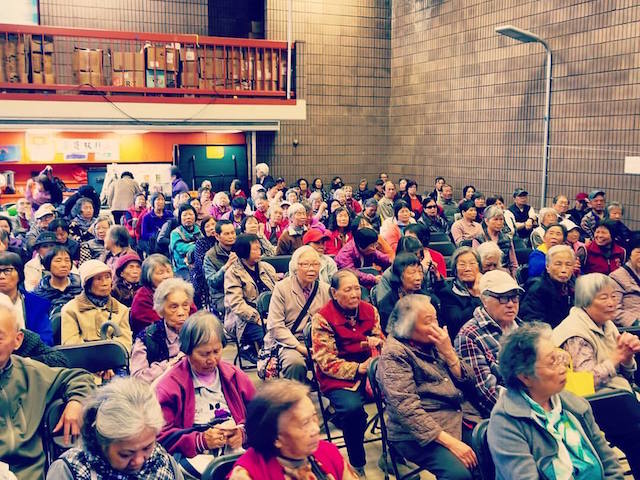
December 13, 2018
“In 2017, right before Christmas, we stop a deportation flight to Cambodia with thirty fathers, brothers, and sons on board. A few months later, many of them are deported anyway.” Kevin Chun Hoi Lo, an immigration lawyer, takes the reader inside detention centers. He is surprised to find ugliness and beauty in such close proximity.
“We spend hours driving to immigration dungeons. The beauty of the Sacramento Delta, with its tule fog and orchards, makes us want to go camping. Some of the detention centers are pretty. One has tiny Japanese bridges that connect landscaped lawns. As we pass the incarcerated gardeners, they stand silently on the other side of a colored line. We can see how dangerous ICE thinks they are by what color they’re wearing. Brown people in red garb signify the greatest danger.”
The Sea’s Interrogation Room by Song Kyung-dong
November 27, 2018
In the fall of 2018, Korean activist poet Song Kyung-dong read at AAWW’s space in New York. When asked how it felt to be there, he responded, “I’ve been discussing and protesting problems related to this nation and the U.S. Army my whole life, and now I’m finally here一very strange.” Last week, while supporting Korean labor activist Kim Jim-suk, Song collapsed from a hunger strike.
Tonight, too, people are being dragged away, I hear,
waves rising abruptly, reaching their eyes,
so what about it?
I say that now I only want to forget it all.Still all at a loss
as the waves strike my face,
I ask, What did I do wrong?
I just want to weep, rolling like gravel.
Nepalis Fight for TPS by Pearl Bhatnagar
April 19, 2018
In April 2018, Trump terminated the Temporary Protected Status for Nepali immigrants in the United States. In the weeks before the decision, Pearl Bhatnagar spoke to Nepali workers and activists in Queens about what it would mean for their futures.
“During an ambiguous time, comfort for the Nepali community in Queens takes the form of both emotional labor and community engagement. The women of Adhikaar, who spearheaded the campaign to gain TPS in the first place in 2015, are at the forefront of today’s fight to keep it alive.
TPS holders have many questions: What would it mean to readjust to a life without basic protections, to navigate not only the threat of deportation, but also workplace dynamics rife with exploitation? How do they prepare for what could be the worst?”
Thresholds: A Story of Family Across Indigenous and Settler Histories in Northeast India by Xewali
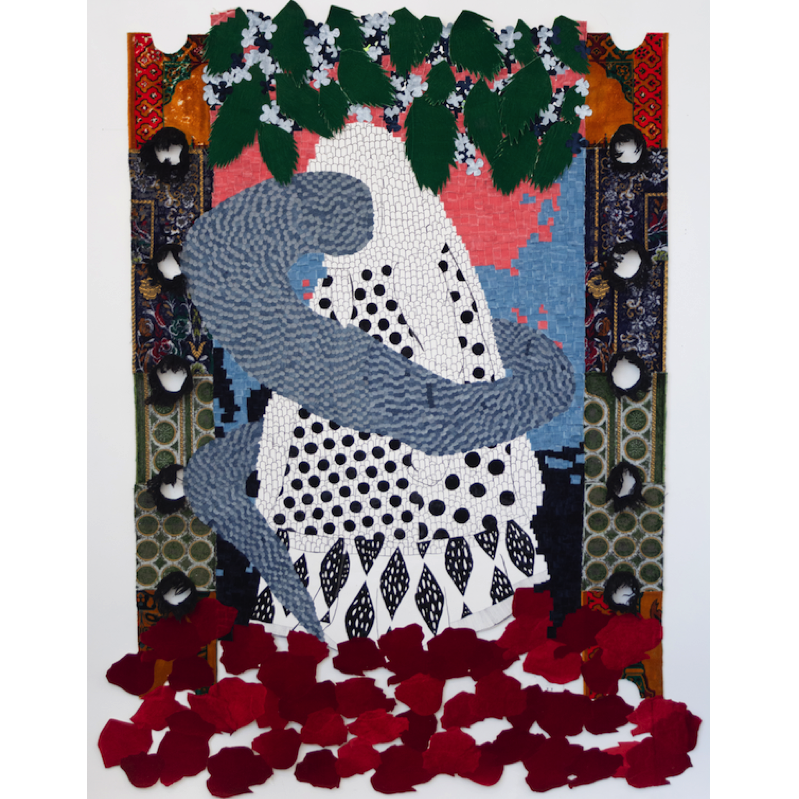
March 12, 2020
The Trump era has aligned with a global creep of fascism. Xewali’s short story offers a longer historical backdrop to the ways the Citizenship Amendment Act, passed in late 2019 by India’s far-right Bharatiya Janata Party, attacks indigenous communities in the Northeast as well as Indian Muslims.
“Bengali is the first language I learn, in the long afternoons when my grandmother babysits me, while we await my mother’s return from her day at work. I lay sprawled out on the cool tiles of her floor, the sun streaming in through the back door into her room, and she holds court for hours with free-wheeling improvised stories about the sun, the moon, and the villain that tries to come between them. I absorb her turns of phrases and her vocabulary, becoming fluent and using the language to express myself, to negotiate deals regarding meals and playtime, and for our screaming matches when these negotiations go off the rails. If there is a border between her and myself, my grandmother never lets it be known.”
Rites of Return by Mohamad Saleh
June 20, 2019
Open City Fellow Mohamad Saleh writes about what living in the United States as a part of the Palestinian diaspora means for resistance.
“[T]he most important question facing the Palestinian diaspora in the U.S. at present is that of its boundaries and, by extension, that of its limitations. What does it mean for a Palestinian living in New York to resist? To the extent that he or she works and pays taxes to state and federal governments which directly fund Israeli apartheid, what does resistance mean coming from a Palestinian who contributes at least indirectly to the subjugation of his or her people?”
My Neighbor, the Roosevelt Statue by Rene G. Ontal
July 22, 2020
Rene G. Ontal’s essay on the statue of Theodore Roosevelt at the entrance of the American Museum of Natural History is a reminder of the real harm in living with white supremacist statues.
“In June 1992, I had not yet stumbled across accounts of Roosevelt’s slander and conduct against Black soldiers. Or his endorsement of war crimes against Filipino civilians in the Philippine-American War, and the remarkable Black-Filipino alliance that arose in response to that imperialist venture. Still unseen to me then: all the empirical texts revealing that the racist attributes were in fact baked into the subject’s character as well as his monument. And all the calamities his official acts, piloted by this white supremacist ideology, visited upon Filipinos, Black soldiers and Native Americans once he took office in 1901. These disclosures lay ahead of me.”
Trans Liberation Matters, Regardless of The Presidency by Fei Lu
November 19, 2020
For Black and Asian Feminist Solidarities, Fei Lu writes on how, regardless of who is in the White House in 2021, Asian and Black trans women will not be ignored or silenced. Even with a Biden win, the fight is not over.
“While positive media coverage of trans people is increasing, and President-elect Joe Biden vocalizes support for the transgender community, it doesn’t mean that all trans peoples’ lives are improving. For many Asian and Black trans people, the intersection of race and trans identity make isolated one-off successes challenging to celebrate, especially when both communities continue to face daily racial and transphobic violence.”
For Future People: Reflections on Imprisonment by Roshan Abraham
February 19, 2020
AAWW Witness Program Fellow Roshan Abraham imagines incarceration as a kind of towering, time-stealing machine: tens of millions of years are trapped inside, waiting to be released.
“It’s hard to measure how much time American prisons have stolen, how many relationships have been held captive. While writing this essay, I tried to calculate a precise number of years, but found a number elusive. I reached out to the Prison Policy Institute, which told me that no such number had been calculated, to the best of their knowledge. When I crunched the numbers myself using the institute’s own data, however, my crude calculation easily went into the tens of millions of years.
This may feel like an abstract exercise, but to me it is not. The incredible scale of these numbers help to put in perspective the limits of our own imaginations.”

